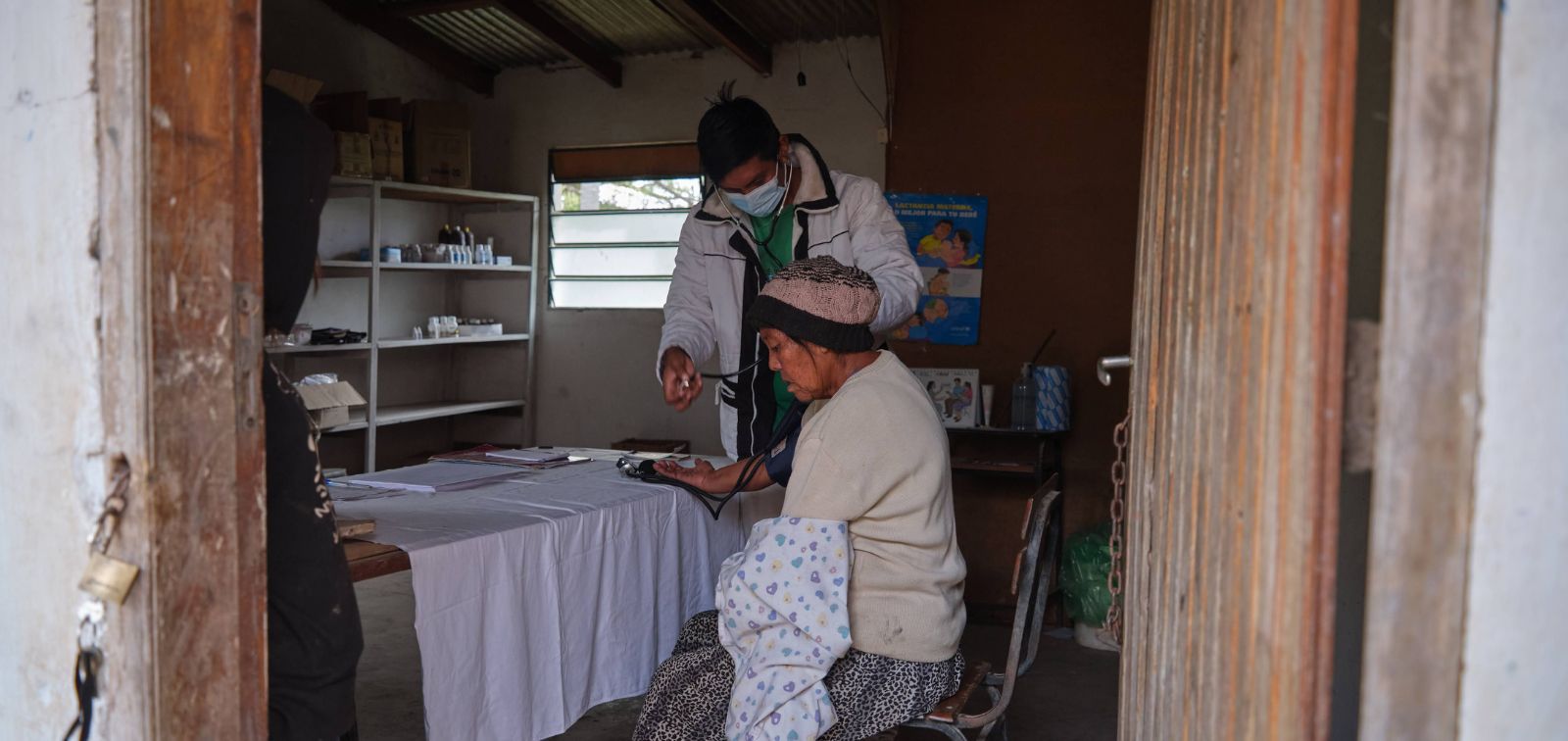CLIMSOCTRYPBOL
Insight on climate and social participatory research for integral management of vectorborne zoonosis caused by Trypanosoma cruzi and Leishmania spp. in the Bolivian Gran Chaco.

- Duración
- 08/05/2023 - 07/05/2026
- Coordinador
- Xavier Rodó
- Financiadores
- Ayuda PCI2023-143449
The project is part of a multidisciplinary EU-LAC project for the study of the transmision risk of Zoonotic American Tripanosomiasis (Chagas disease) and Leishmaniasis in the Gran Chaco of Bolivia. The distribution and temporality of these transmisible diseases is linked to climate change, and also to the behaviour and social nature of their human hosts, domestic reservoirs and vector populations. Both Chagas disease and leishmaniasis are considered to be in an emergency and/or re-emergence situation in various parts of the world.
In the Bolivian Chaco region, Chagas disease is highly endemic while leishmaniasis outbreaks have been very recently described, including visceral leishmaniasis cases. In close coordination with social actors, local authorities and research centres, the project will deploy the team experience in community engagement and co-creation in order to design, implement and evaluate a strategy to meet community needs related with prevention, diagnosis, treatment and follow-up of leishmaniasis and Chagas disease.
A range of complimentary modelling techniques will investigate their climatic drivers of transmission in the area, considering vector ecology and human disease outcomes. For that, we will prospectively assess the presence of Chagas and leishmaniasis vectors in human dwellings and peridomestic environments, and the seroprevalence in domestic reservoirs (dogs). Triatomine samples will be used for a detailed population genomic analysis in order to evaluate and identify management-units of Triatoma infestans, main vector of Chagas disease in Bolivia, and sand flies samples will be analysed for the first time to obtain data on their genetic population. The populations of T. cruzi and the Leishmania species/s in the area will be characterized. Specifically, the team will collaborate in providing data for climatic studies, in the preparation of material and surveys for social studies and in the epidemiological study (canine reservoir and vectors), emphasizing in the study of cross-reactions between T. cruzi and Leishmania, and their genetic profiling (study of the populations of T. cruzi and Leishmania spp.).
Total Funding
157.300 €
Nuestro equipo
Coordinator
-
 Xavier Rodó ICREA Research Professor
Xavier Rodó ICREA Research Professor
ISGlobal Team
-
 Leonardo de la Torre Research Assistant
Leonardo de la Torre Research Assistant -
 Julio Alonso Padilla Assistant Research Professor, Director of the Chagas Initiative
Julio Alonso Padilla Assistant Research Professor, Director of the Chagas Initiative -
 Quim Gascon Research Professor
Quim Gascon Research Professor
Otros proyectos
Ver proyectos pasadosNHEPACHA
Nuevas Herramientas para el Diagnóstico y la Evaluación del Paciente con Enfermedad de Chagas
Estudio inmunológico de la vacuna RTS,S
Estudio de correlatos de protección frente a la malaria después de la vacunación con RTS,S/AS01E: Una evaluación inmunológica exhaustiva en el ensayo clínico de Fase III, doble ciego, aleatorizado, multicéntrico con un grupo control
Euroleish.net
Control of Leishmaniasis. From bench to bedside and community
GREPIMER
Grup de recerca en patología importada i malaties emergents i re-emergents
TESEO
Nuevos regímenes de quimioterapia y biomarcadores para la enfermedad de Chagas
ASINTMAL
Unravelling Disease Tolerance and Host Resistance in Afebrile 'P. falciparum' Infections: a Prospective Study in Mozambican Adults
ADAM
Administración masiva y focal de fármacos antimaláricos para avanzar hacia la eliminación de la malaria en Mozambique: acelerando la implementación de programas y políticas
Science4Pandemics
Citizens engagement digital platform for collective intelligence in pandemics
HIDDENVIVAX
Novel organ-on-a-chip technology to study extracellular vesicles-mediated cryptic infections in Plasmodium vivax malaria
Subclinical Infections in Children and Long Term Health Effects
Infection acquisition in early life and health outcomes in childhood - MARATO TV3
Herramienta innovadora de detección de enfermedades y vacunación a población inmigrante en riesgo en España
Project Code: PI21/00651
Impacto de las coinfecciones en el balance de respuestas de anticuerpos y linfocitos T helper a antígenos diana de inmunidad natural y vacunal frente a patógenos humanos prominentes
Project Code: PI20/00866
EpiGen
Building Scalable Pathogen Genomic Epidemiology in Ethiopia
MalTransc
Transcriptional regulation of adaptation and developmental decisions in malaria parasites: from epigenetic variation to directed transcriptional responses
BOHEMIA
Broad One Health Endectocide-based Malaria Intervention in Africa
RESPONSE
Mechanisms of the transcriptional responses to changes in the environment in the malaria parasite Plasmodium falciparum
VivaxEVTalk
Extracellular Vesicles as Intercellular Communicators and Biomarkers of Cryptic Erythrocytic Infections in Plasmodium vivax malaria
VaMonoS
Unravelling the heterogoneity and function of monocytes in vaccination and immunity to malaria
SexMal
Social affairs and sex in P. falciparum: implications for malaria elimination
MENA Migrant Health
Transforming data collection and surveillance to drive migrant health research, care and policy
MESA
La Alianza Científica para la Erradicación de la Malaria (MESA) tiene como objetivo avanzar en la ciencia de la erradicación de la malaria.
SMART
Identifying Severe Malaria with a new Aptamer-based Rapid diagnostic Test
GlycoTargets
Nuevas terapias antimaláricas dirigidas contra las vías de glicosilación de 'Plasmodium falciparum'
GenMoz
P. falciparum genomic intelligence in Mozambique



